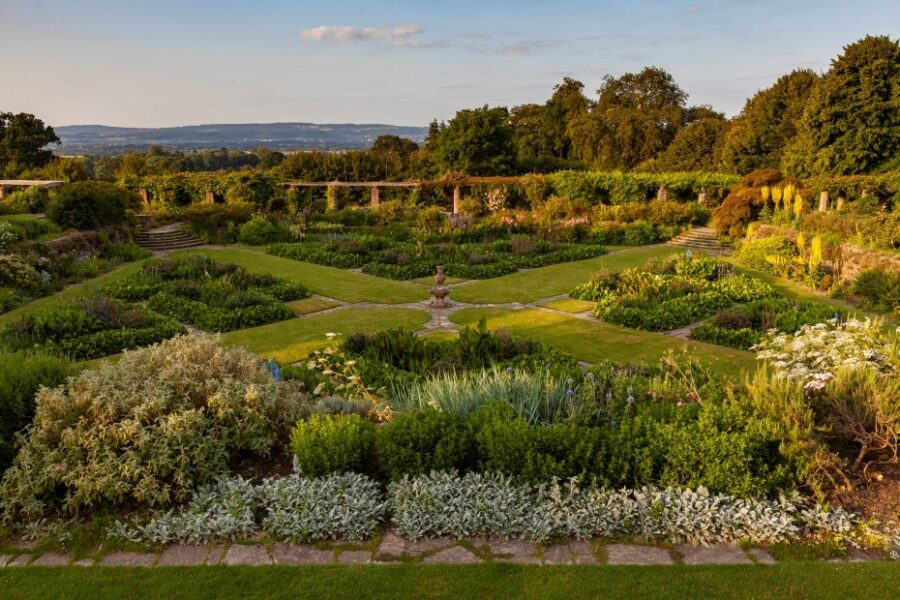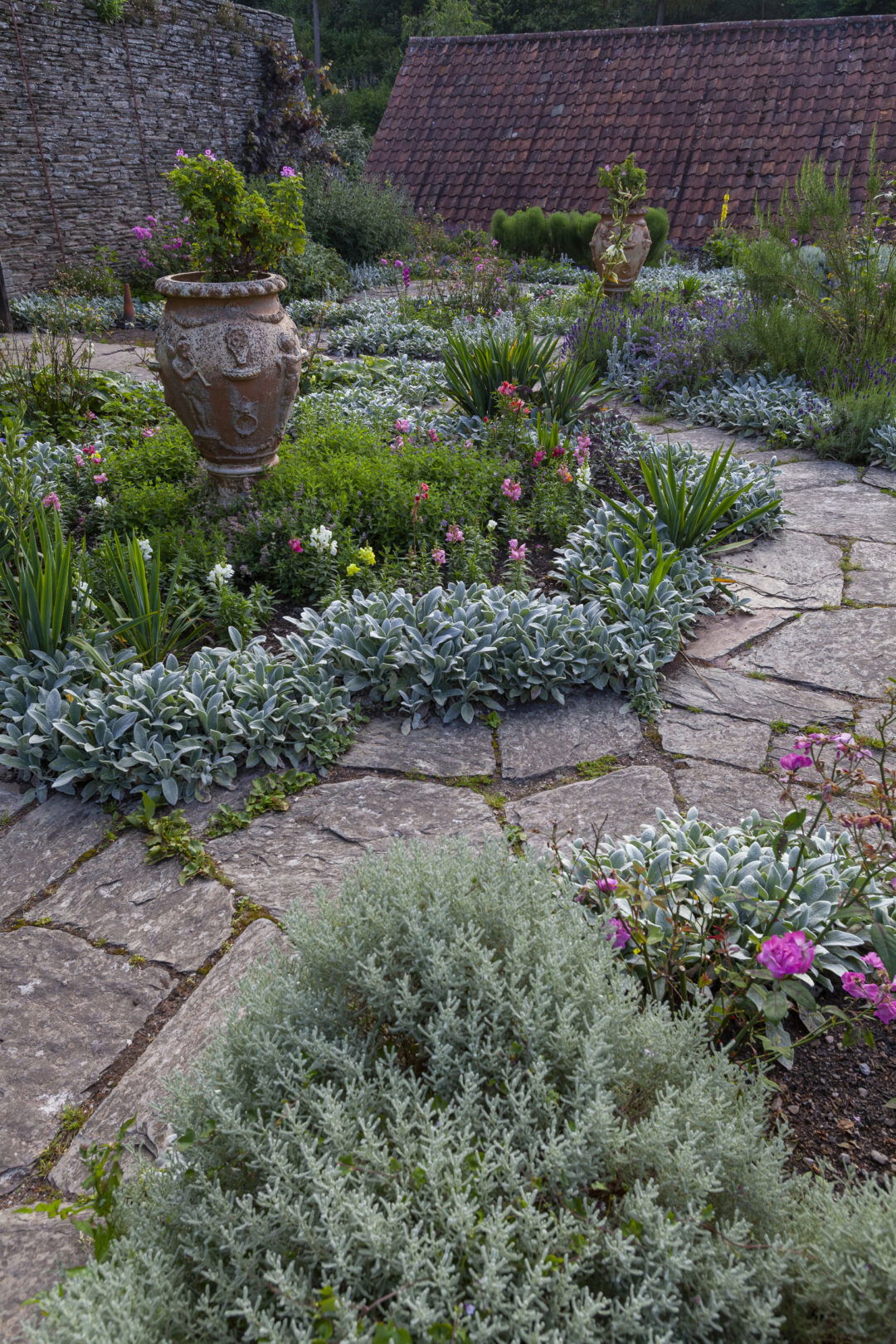Notice
Please be aware that Hestercombe will be closed on Christmas Day and Boxing Day, but will be open daily throughout the rest of the Christmas holidays.
Head Gardener, Claire Greenslade, on how we can adjust our garden planting to better suit long, dry spells
Please be aware that Hestercombe will be closed on Christmas Day and Boxing Day, but will be open daily throughout the rest of the Christmas holidays.

The recent heatwave and ongoing extreme weather is very hard for our garden plants to respond to. Most plants like consistency and are adapted to specific climates, temperatures, topography, soil types and weather types. They respond to circadian rhythms like length of daylight, and day-to-night temperature changes. When this goes awry, plants do weird things and react very fast. Hot temperatures and dry soils will cause wilting, crisping of leaves, colouration of leaves, early leaf fall, and even limb drop on thirsty trees. Under stress, plants try to flower and seed as quickly as possible, speeding up reproduction to make sure that the plants can succeed into the next generation, but making the flowering season shorter. We are very regularly having to give all the plants on the Victorian terrace a chop. If we left them they would go to seed so quickly, and ideally we need them to survive into the autumn. Chopping off the flowers makes them bush out instead and they concentrate on producing leaves and not flowers, and therefore seed.
At Hestercombe we are very lucky that Gertrude Jekyll liked Mediterranean plants, as these plants are more suitable to this dry weather. Plants with silvery foliage are especially adapted. They are covered in tiny hairs and these help to trap any moisture. The colour also helps to reflect the sun's rays. Some are full of essential oils ( think of all the Mediterranean herbs we use in our cooking) and that means the leaves don't transpire (lose moisture) so easily.
From a garden design point of view, the greys and silvers add a perfect backdrop to add pops of colour. Most flower colours look great with some grey foliage plants.
The weather has given us a lot to think about in the garden. So what can we do to help the plants?
Firstly you can really see the value of a good mulch. The beds that were mulched earlier in the year have done much better than others, as the mulch has helped to conserve water within the soil and stop it evaporating.
Water efficiently. It’s not always possible but in this heat it is best to water at dusk, or dawn. Basically before the temperatures are too hot. This means that you can get water directly to the plant and not lose too much to evaporation. And, instead of using a sprinkler, aim your watering at specific plants. Water at the base of the plant, there is no need to water the leaves, but instead get the water where it is needed most- at the roots.
Some of the planting at Hestercombe is on steep slopes so we dig holes near the roots and pop in an old plant pot. That way the water can go into the plant pot and direct into the roots without just running off the bank.
At home try to conserve as much water as possible. Add water butts below as much guttering as you can. We have been showering with the plug in, leaving the water to cool down, and then filling up watering cans with the water- every little helps!
It has been really interesting to see which plants do well in the heat and there have been a few surprises. I thought that most of the herbaceous perennials would fare well, especially the prairie types, but they have really struggled. Lots of the Asters have either curled leaves or mildew. I thought that the roses might struggle but actually they have been ok. The trees, with their huge root systems, look tired and you can see that they are dropping leaves. They do this as a shock reflex. Less leaves means that they can slow down a bit. We have had a few large limbs drop too. Again this is the tree's way of getting rid of any extras so that it can concentrate on survival.
Here are some of the plants that have done really well in the garden this summer with very little water.
Eryngium giganteum - sea holly
Echinops bannaticus - globe thistle
Stachys byzantina - lamb's ears
Lathyrus latifolius - perennial sweet pea
Santolina chamaecyparissus - cotton lavender
Choisya ternata - Mexican orange blossom
Salvia rosmarinus - rosemary
Lavandula angustifolia - lavender
Claire
Stay up-to-date by signing up to our newsletter and following us on social media.
